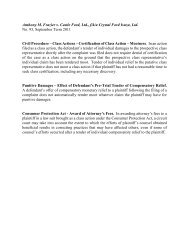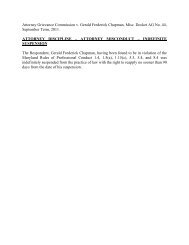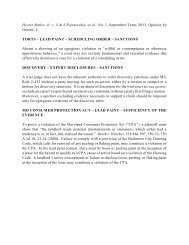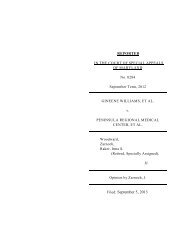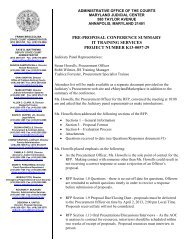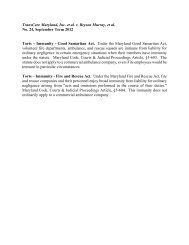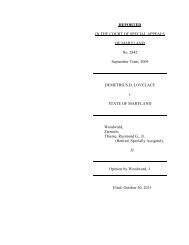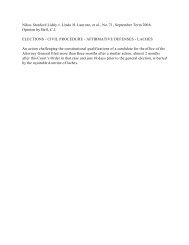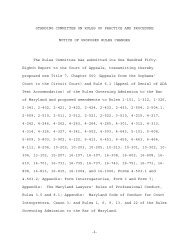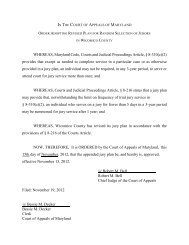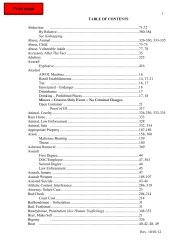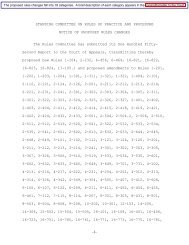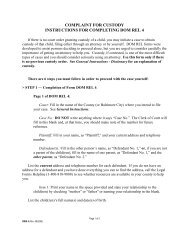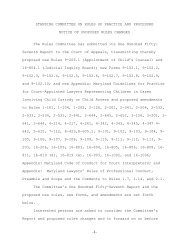HEADNOTE: Mario Rodriguez Gutierrez v. State of Maryland, No. 98 ...
HEADNOTE: Mario Rodriguez Gutierrez v. State of Maryland, No. 98 ...
HEADNOTE: Mario Rodriguez Gutierrez v. State of Maryland, No. 98 ...
You also want an ePaper? Increase the reach of your titles
YUMPU automatically turns print PDFs into web optimized ePapers that Google loves.
that the appellant, because <strong>of</strong> this association, would be more likely to kill, or use a handgun<br />
in the commission <strong>of</strong> a felony. It is clear that the probative value <strong>of</strong> Sgt. <strong>No</strong>rris’ testimony<br />
simply does not outweigh the prejudicial impact it would have on the jury.<br />
B.<br />
While I disagree with the conclusion <strong>of</strong> the majority in regards to the relevancy <strong>of</strong> any<br />
<strong>of</strong> the expert witness’ gang-related testimony, I agree that the majority is correct when it<br />
states, that “the trial court erred when allowing [the expert witness] to testify that MS-13 is<br />
the gang that law enforcement ‘had seen the most violence with recently for the past four,<br />
four and a half years in this region.’” <strong>Gutierrez</strong>, __ Md. at __, __ A.2d at __ [slip op. at 22].<br />
Certainly, the fact that MS-13 or any gang is more violent than others has no bearing on<br />
whether this particular defendant committed this particular crime. I do not agree that the<br />
error was harmless.<br />
The test that controls the resolution <strong>of</strong> this issue was pronounced in Dorsey v. <strong>State</strong>,<br />
276 Md. 638, 350 A.2d 665 (1976):<br />
“[W]hen an appellant, in a criminal case, establishes error, unless a reviewing<br />
court, upon its own independent review <strong>of</strong> the record, is able to declare a<br />
belief, beyond a reasonable doubt, that the error in no way influenced the<br />
verdict, such error cannot be deemed ‘harmless’ and a reversal is mandated.<br />
Such reviewing court must thus be satisfied that there is no reasonable<br />
possibility that the evidence complained <strong>of</strong> – whether erroneously admitted or<br />
excluded – may have contributed to the rendition <strong>of</strong> the guilty verdict.”<br />
(footnote omitted)<br />
Id. at 659, 350 A.2d at 678. The test focuses on the effect <strong>of</strong> evidence, admitted or excluded<br />
in error, on the verdict delivered by the trier <strong>of</strong> fact. When a reviewing court determines that<br />
23



